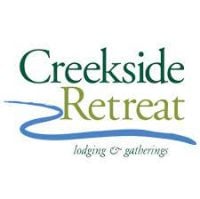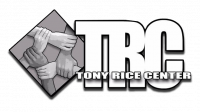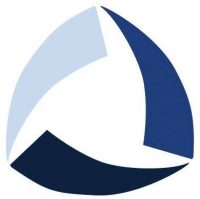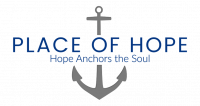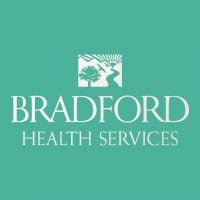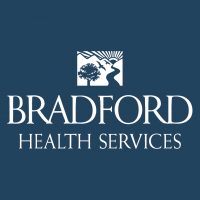Creekside Retreat
Drug Rehab Center in Taft, Tennessee
Creekside Retreat is an addiction and substance abuse treatment center in Tennessee that offers individualized treatment services, evidence-based practices, and an aftercare program to help individuals with addiction and substance abuse issues begin the path to recovery.
Multiple patients have reported Creekside Retreat as permanently closed.
Research other rehabs in Taft, Tennessee, or get help finding an open facility.
About
Creekside Retreat in Taft, Tennessee is an addiction and substance abuse treatment center that offers help to individuals who are struggling with addiction and have difficulty with substance abuse. This facility offers a caring and supportive environment that is designed to provide treatment to those in need and help them begin the path to recovery. Creekside Retreat provides a variety of treatment services, including individual and group counseling, family therapy, medication-assisted treatment, and mental health services. The goal of the facility is to ensure that individuals have the skills and support they need to live a healthy and sober life.
Creekside Retreat is dedicated to providing individualized treatment for each patient to ensure that their needs are addressed. The facilities use evidence-based practices, such as cognitive-behavioral therapy and relapse prevention, to help individuals gain insight into their addiction and learn strategies for developing healthy coping mechanisms. Other services offered at the facility include psychosocial therapies that focus on improving relationships, lifestyle education, and relapse prevention. The facility also provides an aftercare program with monitoring, continued education, and counseling.
Creekside Retreat is accredited by the Joint Commission, licensed by the State of Tennessee, and has achieved the 2016 Quality Improvement Award. The facility also operates a recovery support program that provides a safe, supportive environment for those in recovery and access to resources and activities. Creekside Retreat also provides drug and alcohol education classes and community outreach programs to help individuals and families affected by addiction become educated and aware of the issue.
Genders
Ages
Modality
Additional
Conditions and Issues Treated
Recovering from substance abuse is an essential part of a healthy life for many people. It’s a long and challenging process, but it can be worth it in the end if you manage to get through all parts. Detoxifying your body, rehabilitation after that time passes or when needed (depending on what type), and then recovery while also receiving therapy support throughout this entire process.
A standard route to starting recovering from substance abuse and addiction is through a detoxification center. There you can completely heal your body and mind and continue on the path of recovery without feeling any of the lingering effects of substances.
Within the past decade, opioid addiction has become a nationwide epidemic. The United States hosts one of the world’s highest rates of opioid use or abuse and has one of the highest rates of opioid-related deaths. In the United States, opioid drugs are classified as Schedule II-IV controlled substances due to their highly addictive properties and potential for abuse. These include morphine, opium, heroin, oxycodone, hydrocodone, methadone, and fentanyl. Physicians usually prescribe opioids to help control pain.
Over time, opioid users develop a tolerance for the drugs, which makes it difficult, if not impossible, to function without them. In turn, opioid users often resort to illicit means of obtaining the drugs. These means can include drug dealers, friends, and family members who do not have legitimate prescriptions for the drugs. Opioid addiction can quickly lead to heroin use, especially those seeking more intense highs than prescription opioids offer. Due to the high risk of overdose, heroin users are at a much higher risk for illness and death.
A person who struggles with addiction and a mental health condition suffers from a dual diagnosis. This means that they have two issues that must be treated. The specific mental health issues that the patient at Creekside Retreat might have include but are not limited to:
- Depression
- Bipolar Disorder
- Anxiety
- PTSD (Post Traumatic Stress Disorder)
The specific addiction issues that the patient might have include but are not limited to:
- Alcoholism
- Drug Addiction (i.e., Cocaine, Meth, and other stimulants, Marijuana, and Ecstasy)
The combination of the two illnesses can be tough to treat. Taking care of one or the other is tough, and taking care of both cannot be done alone. A patient who receives dual diagnosis treatment will be given the best chance at becoming sober.
Levels of Care Offered
This center offers a variety of custom treatment tailored to individual recovery. Currently available are Aftercare Support, Detox, Drug Rehab, Dual-Diagnosis, Inpatient, Intervention, Outpatient, with additional therapies available as listed below.
Detoxification is a critical first step in treatment for drug addiction. Drug detoxification helps the individual withdraw from the drug by providing a controlled environment where symptoms can be managed through medication and close observation. Detoxification is an inflection point where the individual can get on a recovery track, but it’s also one of the most dangerous points in the recovery process.
In addition to going through physical withdrawal from certain drugs, a detox program also provides the individual with drug testing to monitor their progress. This way, if the individual is not ready for sobriety (such as if they relapse), the treatment professionals can catch it early on and use that opportunity to help re-orient the individual towards recovery.
Inpatient treatment centers offer a safe, secure, and often medically supervised environment for drug or alcohol-addicted individuals. Many of these facilities are equipped to provide detoxification, treatment for co-occurring mental health disorders, and aftercare programs.
The patient typically spends 28 to 30 days at the facility and will receive extensive drug counseling. They will also learn how to live without drugs and how to make the right decisions in life.
An outpatient treatment program is set up to help with alcohol or drug addiction or a co-occurring disorder. The treatment must attend the treatment facility for their therapy and other programs but return home each night. The frequency of mandatory attendance decreases after much of the treatment program is complete. The treatment programs are monitored by the treatment facility and case managers who work for a judge or judge’s office. A treatment program may be performed out of a treatment facility, treatment clinic, or treatment center.
The benefits of outpatient treatment programs are many. One of the most beneficial treatment programs is that it allows treatment for clients who cannot afford or may not be able to attend treatment at a treatment facility, treatment center, or treatment clinic full-time. Another benefit of treatment programs is that they reduce crime rates because treatment allows people to treat their addiction.
There are many different kinds of services that support and help people in recovery. Interventions help families and friends share feelings, express their desire for change, and plan for concrete steps toward recovery. Interventionists are trained professionals who assist family members in arranging an intervention or lead an intervention themselves. The family members should be involved in selecting an experienced professional to lead their loved one into treatment. Intervention services are available throughout the country.
Recovering drug addicts need aftercare support when they leave treatment. The support can include guidance through 12-step programs, outpatient rehabilitation programs, and support groups. Aftercare supports the individual in their desire to maintain sobriety by reducing relapse risk with positive choices.
The success of drug treatment does not end when the addict leaves the rehabilitation center. There is no such thing as a “one and done” type of rehabilitation process. Recovery is a lifelong journey that begins with treatment and continues by the addict committing to outside support groups or drug rehab programs.
When choosing a program, it is crucial to choose one that will provide long-term aftercare support. This ensures that you have the tools you need to sustain your recovery.
Therapies & Programs
Individualized Treatment is essential because it gives addicts the ability to participate in a program that meets their unique needs. An addict should work with professionals who understand what they’re going through, especially if the addict is actively using. Finding the right treatment program for an addict is difficult, but it’s even harder without communicating with those who have experience treating your specific situation.
The therapies typically involve all family members, potentially including siblings, children, and parents who play a role in their daily lives. These sessions can be essential because they address past issues that may have affected an addict or alcoholic’s recovery process. They provide support during this time when it is needed most!
A family therapy session, often called a family meeting or intervention, is a necessary process that helps loved ones of addicts see their situation in a new light. It’s also one of the most challenging things families will ever have to do when they’re facing a loved one battling addiction or alcoholism.
Group therapy sessions provide recovering addicts with a chance to cope with everyday situations that many face. Group therapy sessions are held in rehab facilities, clinics, churches or community centers that offer drug addiction treatment.
People who attend these groups are encouraged to voice their feelings and support other addicts in recovery. This helps group members strengthen their own recovery program while cheering on others who are struggling with sobriety.
Trauma therapy allows them to work through past trauma to have peace of mind and begin down the road of sobriety. The therapist will work with the individual to help them understand their past and present relationships. Patients may often believe that something is inherently wrong with them or they are unworthy of love. The therapist aims to correct these negative feelings and behaviors by helping the person realize that their actions do not reflect who they truly are.
Dialectical behavior therapy, or DBT, is one form of cognitive behavioral treatment. This type of therapy typically involves both individual and group sessions with a therapist on a regular basis.
It uses concepts like mindfulness training to help addicts learn how to identify their thoughts, feelings, behaviors and the experiences that trigger them so they can avoid relapse. DBT also teaches addicts how to regulate their emotions, which can make it easier for them to avoid or overcome negative thoughts and cravings.
Cognitive Behavioral Therapy (CBT) is a highly effective treatment option based on the idea that how we feel, think and act all interact together. Our thoughts determine our feelings and behaviors; our feelings affect our thoughts, and our behaviors change our thoughts and feelings. CBT helps people explore their thoughts for problems (or false beliefs) that influence their mood and actions. By examining their thoughts and beliefs, people can recognize distorted or irrational and modify them to more realistic, positive ones. CBT is very goal-oriented, which means that the therapist and patient work together on a specific problem while learning to become more adept at solving future problems.
CBT works well with a broad range of people, including those with depression, anxiety disorders, eating disorders, and problems with anger. In addition to helping a client focus on thoughts that can be changed, CBT also allows them to take an active role in their treatment. This is called a collaborative approach because both patient and therapist work together to produce the best possible results.
CBT is based on cognitive learning theory, which says that our behavior is a learned response to our environment. Cognitive refers to thoughts and beliefs, while behavioral relates to actions or deeds. CBT helps people learn ways of behaving to improve their quality of life by focusing on specific problems or goals they want to achieve. Sometimes, CBT is used alone; other times, it is combined with medications or brief counseling techniques such as solution-focused and motivational interviewing to achieve optimal results for the patient.
Eye Movement Desensitization and Reprocessing (EMDR) therapy is different from the traditional treatment that helps patients recover from substance abuse. This therapy, offered by Creekside Retreat, helps patients reduce the impact of traumatic memories on emotions. It does this by having them follow a bar of light or watch their therapist’s finger move back and forth, which mimics the eye movements of REM sleep. This reduces the negative feelings associated with such memories and promotes calmness and relaxation.
EMDR therapy is combined with behavioral therapies to address the root cause of substance abuse. This reduces the chances of relapse at a later stage.
Life skills training is beneficial for addicts in recovery because it helps them learn how to take care of themselves and improve their quality of life, which can promote feelings of purpose and motivation.
This works by teaching individuals life-enhancing skills that support positive living, including:
- Healthy lifestyle habits
- Skills to effectively manage stress
- Effective communication skills to help them get their needs met without turning to drugs or alcohol
- Money management and budgeting skills so they can continue to take care of themselves after treatment ends.
A 12-step program is a mutual support group in which members share their experiences with addiction. The goal of these programs is to provide support and encouragement throughout the recovery process.
12-step programs are beneficial for:
- Individuals who have already stopped drug/alcohol use
- Individuals who have already stopped drug/alcohol use, and are looking for a support system to maintain sobriety
- People who may be thinking about quitting their drug/alcohol use
- People who do not have access to other types of addiction treatment
Patient Experience
Creative Arts
Creative arts therapy is not a new form of therapy. It has been practiced for over 100 years, using art as its main form of therapy. Initially used for children, over the past few decades it has been recognized as an effective treatment option for adults too. It is now practiced in psychiatric hospitals and drug rehabilitation centers worldwide.
Creative arts therapy may include painting, drawing, writing poetry or song lyrics to express oneself where words would fail to capture the true feeling. It is an outlet for personal expression in a safe environment without fear of judgment. Weaker outlets, such as writing poetry or song lyrics, may be used to explore emotions that are difficult to tackle head on in other ways. The creative process allows the patient to connect feelings and thoughts together which helps to balance their mental state.
Experiential Therapy at Creekside Retreat
Drug addicts can benefit from experiential therapy, which involves real-time activities to process trauma and emotions. This type of therapy is available at Creekside Retreat and can help reduce the need to resort to drugs and alcohol. Activities may include role-playing, use of props, and others. The individual learns to release suppressed thoughts that lead to negative feelings and embrace the present moment. Experiential therapy is beneficial in treating various disorders, including drug addiction, eating, and behavioral disorders.
Equine Therapy at Creekside Retreat in Tennessee
One of the most unique benefits of addiction treatment services is equine therapy at a specialized rehab center. Recovery from an addiction can be challenging, and it is often difficult for recovering addicts to reach out and connect with others. It takes great courage and strength to admit that one has a problem and to seek help.
Equine therapy is a non-traditional treatment modality that helps addicts overcome barriers and offers benefits such as:
- Provides support in a unique way while increasing positive self-esteem
- Reduces feelings of isolation by forcing individuals to get out into the community and reach out to others
- Offers a low-stress, nonthreatening environment in which addicts can connect with other people and animals
- Allows recovering addicts to reach out to horses and build trust with them organically to help treat underlying psychological disorders.
Payment Options Accepted
For specific insurance or payment methods please contact us.
Is your insurance accepted?
Ask an expert, call (888) 674-0062
Additional Details
Specifics, location, and helpful extra information.
Taft, Tennessee 38488 Phone Number(931) 425-0589 Meta DetailsUpdated November 25, 2023
Staff Verified
Patient Reviews
There are no reviews yet. Be the first one to write one.
Taft, Tennessee Addiction Information
Tennessee joins the list of states with an above-average rate for drug and/or alcohol-induced deaths. Most of these deaths are related to opioids, such as prescription opioids. The Volunteer State ranks 2nd highest in the nation for the number of prescriptions given out. The state also ranks at the top for prescription drug-related overdoses.
Treatment in Nearby Cities
- Manchester, TN (45.9 mi.)
- Selmer, TN (106.8 mi.)
- Ashland City, TN (86.7 mi.)
- Jackson, TN (124.9 mi.)
- Newport, TN (208.1 mi.)
Centers near Creekside Retreat
The facility name, logo and brand are the property and registered trademarks of Creekside Retreat, and are being used for identification and informational purposes only. Use of these names, logos and brands shall not imply endorsement. RehabNow.org is not affiliated with or sponsored by Creekside Retreat.
